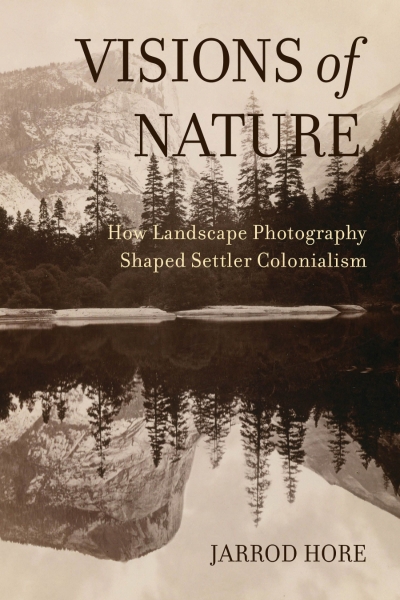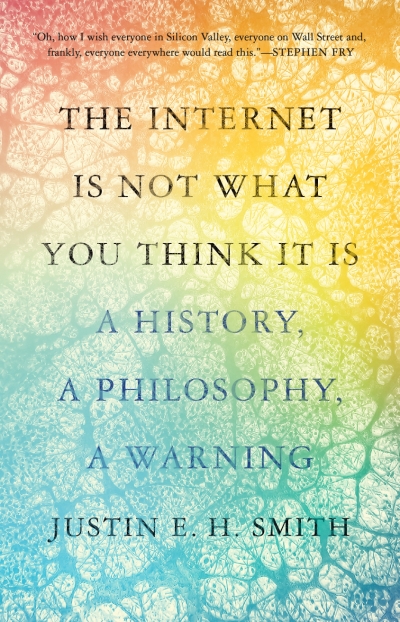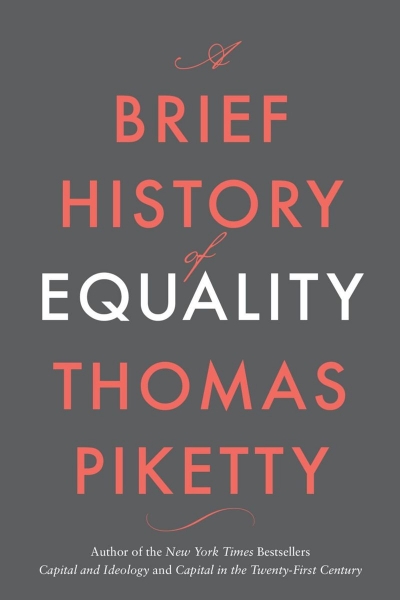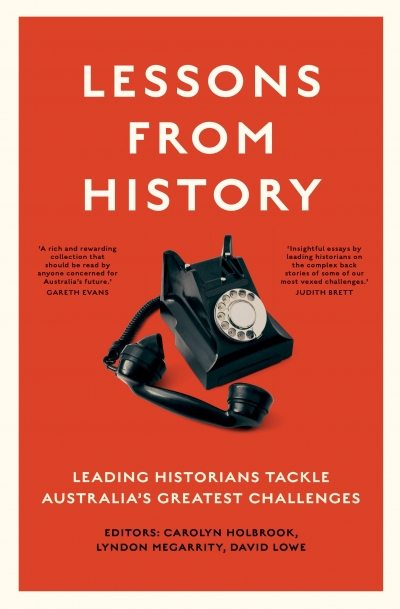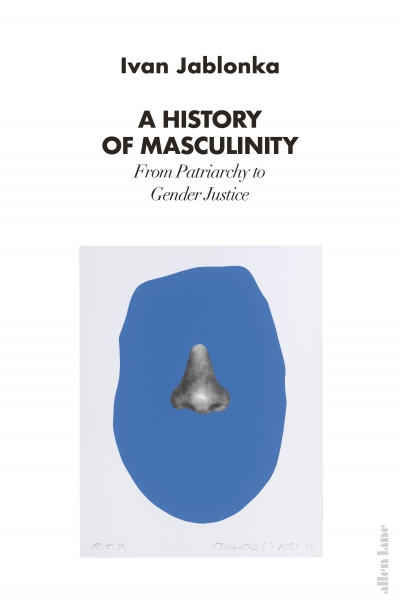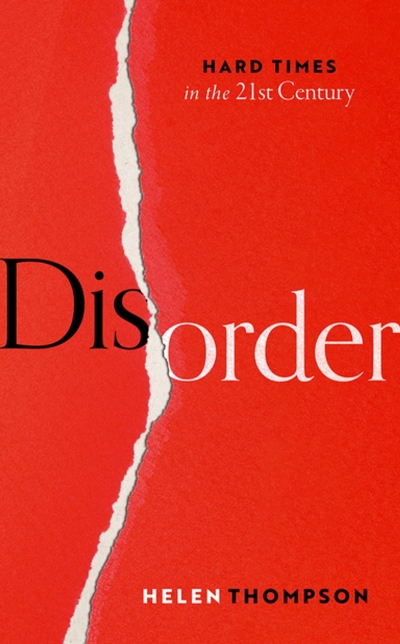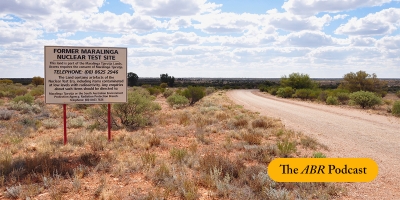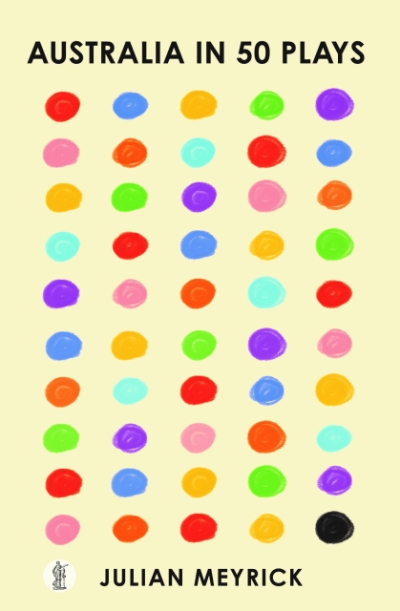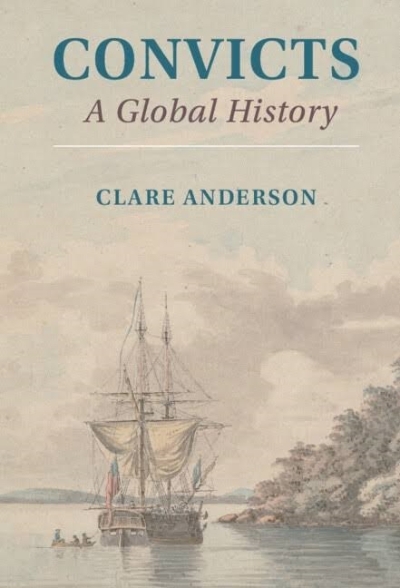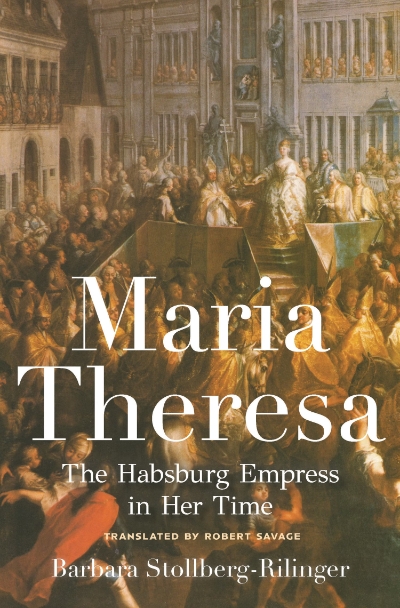History
Visions of Nature: How landscape photography shaped settler colonialism by Jarrod Hore
‘Country’ – the land of Indigenous peoples (minus their Dreamings) – is the great subject of settler-colonial art, an act of appropriation in which the dispossession of its original custodians is rendered invisible. As Jarrod Hore establishes beyond doubt in Visions of Nature, it was landscape photographers who proved to be one of the more significant cultural agents of settler colonialism across the Pacific Rim in the second half of the nineteenth century. What his important study reveals even more clearly is just how much they and their images were shaped by the times and societies in which they worked.
... (read more)The Internet Is Not What You Think It Is: A history, a philosophy, a warning by Justin E.H. Smith
A dubious privilege of belonging to Generation X is that your life straddles the period during which the internet went from being science fiction to settled fact of life. Take, for example, Justin Smith, the American-born, University of Paris-based historian of philosophy and science, a professor who turns fifty this year. He started out on dial-up message boards in the 1980s, saw his first HTML web page in the 1990s, and now maintains a well-regarded Substack newsletter, where, in between meditations on the historical ontology of depression and the metaphysics of onomastics, he writes with a subtle eye regarding online culture in all its manifestations.
... (read more)A Brief History of Equality by Thomas Piketty, translated by Steven Rendall
Capital in the Twenty-First Century (2013), by French economist Thomas Piketty, is wholly unlike Sally Rooney’s Normal People (2018) bar one telling, if esoteric, similarity. For a period of time during the 2010s, being seen with the book mattered more than having read it. Ed Miliband, former leader of the British Labour Party, boasted that he had not progressed beyond the first chapter. WIRED reported that the five most highlighted passages on Kindle were in the book’s first twenty-six pages.
... (read more)Lessons from History: Leading historians tackle Australia’s greatest challenges edited by Carolyn Holbrook, Lyndon Megarrity, and David Lowe
Lessons from History is a big, ambitious book. Its twenty-two essays – amounting to some 400 pages of research, reflection, and references – seek to pin down, in accessible form, the combined expertise of thirty-three practitioners of history and related fields. Together they address a mélange of pressing issues facing Australia today, testament to the diversity of contemporary Australian history and its interdisciplinary reach. Political, social, economic, business, environmental, and oral historians are all represented, alongside authors whose institutional base is in strategic studies, economics, politics, or administration, but whose work is informed by a keen interest in the past and its lessons.
... (read more)A History of Masculinity: From patriarchy to gender justice by Ivan Jablonka, translated by Nathan Bracher
A History of Masculinity begins with the observation that we live in a global patriarchy that restricts the rights and freedoms of women, and that remedying this situation is a matter of urgent concern. To that end, ‘we need egalitarian men who care more about respect than power’. Ivan Jablonka acknowledges the accusation that men who are active in the feminist movement simply amplify sexist dynamics by ‘speaking in women’s place, as usual’, only to dismiss it summarily. He believes that a book such as his is vital because the feminist cause is ‘a fight that men have shunned’ until now. He hopes to correct his own failings and encourage other men to be ‘good guys’ in the battle for gender justice.
... (read more)‘It’s a media beat-up,’ our Brooklyn Airbnb host assured me as we chatted on the doorstep one sparkling autumn afternoon in early November 2016. ‘They need to make it seem like a contest or there’ll be no story.’ It would have been rude for me, as an outsider, to demur. I bumped into him once more, ashen-faced the following morning, after Pennsylvania had finally swung to Donald J. Trump, delivering him the presidency. Our conversation was brief; his sense of disorientation palpable.
... (read more)Of the many pernicious legacies of colonialism, Australia’s servility in the face of Britain’s nuclear arms aspirations is one of the most under-reported and most consequential. In this week’s episode of The ABR Podcast, Elizabeth Tynan reads her essay tracing the clandestine history of, and fallout from, the agreements that allowed the British to test atomic weapons at various sites in South and Western Australia after World War II. By highlighting the Menzies government’s eager consent and the Australian media’s compliance, Tynan shows that far from being a passive victim, Australia was largely complicit in tests that wrought havoc on large tracts of land and on the Indigenous communities who lived there.
... (read more)For at least the first half of the twentieth century, Australian playwrights were not held in high regard by their compatriots. Popular opinion was summed up by fictional theatre manager M.J. Field in Frank A. Russell’s novel The Ashes of Achievement (1920).
... (read more)In July 1887, a group of British naturalists set out from southern England bound for the Brazilian island of Fernando de Noronha in search of botanical specimens. They left Southampton with high expectations. Charles Darwin, in the 1830s, had visited Fernando as part of his Beagle expeditions and had remarked on the richness of the island, including its thick vegetation.
... (read more)Maria Theresa: The Habsburg empress in her time by Barbara Stollberg-Rilinger, translated by Robert Savage
Few Australians today will have heard of the Empress Maria Theresa (1717–80). And yet this queen of Hungary and Bohemia, archduchess of Austria, ruler of Mantua and Milan, who was also grand duchess of Tuscany and Holy Roman Empress by marriage, bestrode the eighteenth-century stage like a dumpy colossus. The mother of some sixteen children, she styled herself as matriarch for a nation, while the marriages she arranged for her children saw her emerge as a Queen Victoria-like figure: the central node in contemporary Europe’s game of thrones.
... (read more)
